Description
Introduction
The quick opening closure (QOC) is a highly efficient mechanical device specifically designed for pipeline and pressure vessel applications. Its primary function is to facilitate quick and effortless opening and closure operations, ensuring convenient access for maintenance, inspection, and repair tasks. The QOC’s remarkable speed and ease of operation make it an invaluable component in various industries, including oil and gas, petrochemicals, and water treatment.
Choosing the Right Type
When selecting a QOC, it’s crucial to consider the pipeline’s nominal diameter (DN) to ensure compatibility and optimal performance. For pipelines ranging from DN100 to DN350, the bayonet-type quick opening closure is the preferred choice. This design offers exceptional convenience during opening, closing, and overall operation. In contrast, DN400 to DN1200 pipelines are best suited for the lock-ring quick opening closure. This type requires less force when operating, resulting in increased ease and efficiency.
Technical Indicators
To meet diverse industry requirements, QOCs adhere to several key technical indicators:
– Nominal Diameter DN: With a maximum limit of 1800mm, QOCs can accommodate a wide range of pipeline sizes.
– Design Pressure PN: QOCs are built to withstand pressures up to 40 MPa, ensuring reliable performance in high-pressure applications.
– Working Medium: Whether it’s oil, gas, or water, QOCs are compatible with various working mediums, guaranteeing versatility and adaptability.
– Design Temperature: QOCs are engineered to operate flawlessly within a wide temperature range, from -50°C to +300°C, making them suitable for extreme environments.
– Material: QOCs are constructed from a selection of high-quality materials, such as 16Mn, A350LF2, A105, SS304, SS316, F51, F55, INCONEL625, and HASTELLOY C. This ensures durability, corrosion resistance, and longevity, even in challenging conditions.
– Pipe Thickness: QOCs can accommodate pipe thicknesses ranging from 6mm to 100mm, accommodating a broad spectrum of pipeline configurations.
Structure Types:
QOCs come in various structural configurations, each designed for specific applications.
Bayonet Type Quick Opening Closure (Horizontal):
The horizontal bayonet-type QOC features the following components:
– Starting board: A pivotal component that initiates the opening process by engaging with the starting screw.
– Starting screw: Enables rotational movement when engaged with the starting board.
– Safety bolt: Ensures secure closure retention during operation.
– Ring: Provides structural support and stability to the closure mechanism.
– Safety board: Acts as an additional safety measure, preventing an unintended opening.
– Stop pin: Limits the closure’s rotational movement to ensure controlled operation.
– Shell flange: Connects the closure to the pipeline or pressure vessel, forming a reliable and leak-proof seal.
– Handle: Offers a convenient grip for manual operation.
– Extension bar: Provides an extended reach to facilitate opening and closing.
– Bearing: Enables smooth rotational movement, reducing friction and enhancing efficiency.
– Headcover: Encloses the internal components, protecting them from environmental elements.
Bayonet Type Quick Opening Closure (Vertical):
The vertical bayonet-type QOC comprises the following components:
– Handwheel: A manually operated wheel that enables vertical movement during opening and closing.
– Bolt: Secures the closure in place, ensuring stability and reliable sealing.
– Rotating arm: Connects the closure mechanism to the handwheel, translating rotational motion to vertical movement.
– Vertical shaft: Provides vertical guidance and support for the closure.
– Vertical shaft sleeve: Facilitates smooth vertical movement while minimizing friction.
– Starting top wire: Initiates the opening process by engaging with the starting board.
– Starting board: Acts as the initial contact point for the opening mechanism, enabling the vertical movement of the closure.
– Safety bolt: Prevents accidental or premature opening by securing the closure in place.
– Safety board: Enhances safety measures by preventing unintended access to the pipeline or pressure vessel.
– Stop pin: Controls the vertical movement of the closure, ensuring controlled and safe operation.
– Shell flange: Forms a robust and leak-proof connection between the closure and the pipeline or pressure vessel.
– Handle: Provides a convenient grip for manual operation, facilitating easy opening and closing.
– Extension bar: Extends the reach of the handle, allowing for efficient operation in vertical applications.
– Base: Provides stability and support for the vertical bayonet type QOC.
– Headcover: Encloses and protects the internal components from external elements, ensuring their longevity and functionality.
– Guide path: Guides the vertical movement of the closure, maintaining alignment and smooth operation.
– Guide bolt: Secures the closure in the proper vertical position, preventing misalignment or unwanted movement.
Clamp Type Quick Opening Closure (Horizontal):
The horizontal clamp type QOC is equipped with the following components:
– Screw: Secures the closure in place, ensuring a tight and secure seal.
– Safety interlock knob: Provides additional safety measures by preventing accidental opening or closure release.
– Protective cover: Shields the internal components from external elements, preserving their integrity and functionality.
– Opening and closing lead screw: Facilitates the opening and closing process by translating rotational motion into linear movement.
– Headcover connecting plate: Connects the closure mechanism to the head cover, ensuring stability and alignment.
– Adjusting shaft cover upper end: Allows for adjustment and fine-tuning of the closure mechanism.
– Adjusting bolt: Enables precise adjustment of the closure’s position and tightness for optimal sealing.
– Adjust the lower square of the shaft: Provides further adjustability and fine-tuning options for the closure mechanism.
– Oil injection hole for hinge shaft: Allows for lubrication and maintenance of the hinge shaft for smooth operation.
– Pilot hole: Serves as a guide for accurate alignment and positioning of the closure during installation.
– Clamp: Holds the closure firmly in place, ensuring a secure and leak-proof seal.
– Handle: Provides a user-friendly grip for manual operation, enabling easy opening and closing.
– Headcover: Encloses the internal components, protecting them from environmental factors and ensuring their longevity.
Clamp Type Quick Opening Closure (Vertical):
The vertical clamp type QOC consists of the following components:
– Handwheel: A manually operated wheel that facilitates vertical movement during the opening and closing process.
– Set screw: Secures the closure in place, ensuring stability and reliable sealing.
– Rotating arm shaft: Connects the closure mechanism to the handwheel, translating rotational motion to vertical movement.
– Headcover: Encloses the internal components, protecting them from external elements and ensuring their functionality.
– Positioning handwheel: Allows for precise positioning and alignment of the closure mechanism during operation.
– Clamp: Holds the closure securely in place, forming a tight and leak-proof seal.
– Oil filling hole: Provides a point of entry for lubrication and maintenance of the closure mechanism.
– Shell flange: Forms a sturdy connection between the closure and the pipeline or pressure vessel, ensuring a secure seal.
– Safety interlock mechanism: Adds an extra layer of safety by preventing accidental opening or closure release.
– Safety pin: Secures the closure in the closed position, preventing unintended access or tampering.
– Interlocking board: Enables interlocking functionality for enhanced safety and operational control.
– Safety bolt: Ensures the closure remains securely locked during operation, minimizing the risk of unintended opening.
– Protection cover: Shields the internal components from external elements, safeguarding their integrity and functionality.
– Opening and closing lead screw: Translates rotational motion into linear movement, facilitating the vertical opening and closing process.
– Guide path: Guides the movement of the closure mechanism, maintaining alignment and smooth operation.
– Screw: Secures and fastens the components in place, ensuring structural integrity and proper functionality.
Lock Ring Quick Opening Closure (Horizontal):
The horizontal lock ring type QOC incorporates the following components:
– Headcover bracket: Provides structural support and stability to the closure mechanism.
– Rise ring limit plate: Determines the maximum height to which the closure can be raised.
– Set screw: Secures the closure in place, preventing unintentional movement or release.
– Locating pin: Ensures precise alignment and positioning of the closure mechanism.
– Set bolt: Fixes the closure in position, maintaining a secure and leak-proof seal.
– Process screw hole: Accommodates the attachment of additional equipment or accessories to the closure.
– Shell flange bracket: Connects the closure to the pipeline or pressure vessel, forming a reliable and robust seal.
– Lower support plate of swivel arm: Supports the closure mechanism, enabling smooth and controlled rotation.
– Headcover: Encloses the internal components, protecting them from external elements and ensuring their functionality.
– Shell flange: Forms a tight and secure connection between the closure and the pipeline or pressure vessel, preventing leaks.
– Locking mechanism: Enables the closure to be securely locked in place, ensuring safe and reliable operation.
– Adjusting nut: Allows for precise adjustment and fine-tuning of the closure’s position and tightness.
– Lock ring: Provides a secure and robust locking mechanism, keeping the closure firmly sealed and preventing unintended opening.
– Multipurpose handle: Offers versatility and ease of use, allowing for manual operation and control of the closure.
Lock Ring Quick Opening Closure (Vertical):
The vertical lock ring type QOC comprises the following components:
– Set screw: Secures the closure in place, preventing movement or release during operation.
– Handwheel: A manually operated wheel that facilitates vertical movement of the closure mechanism.
– Rotating arm: Connects the closure mechanism to the handwheel, translating rotational motion to vertical movement.
– Rotating shaft: Provides support and guidance for the closure mechanism, enabling smooth operation.
– Rotating sleeve II: Reduces friction and ensures smooth rotation of the closure mechanism.
– Set nut: Holds the closure in position, allowing for precise adjustment and secure locking.
– Head ring: Supports and aligns the closure mechanism, maintaining its stability during operation.
– Headcover: Encloses and protects the internal components, ensuring their integrity and functionality.
– Set bolt: Secures the closure in place, forming a reliable and leak-proof seal.
– Shell flange: Connects the closure to the pipeline or pressure vessel, creating a tight and secure connection.
– Locking mechanism: Enables the closure to be securely locked in place, preventing unintended opening or closure release.
– Universal wrench: Provides a versatile tool for manual operation and adjustment of the closure mechanism.
– Limit board: Determines the maximum height to which the closure can be raised, ensuring safe and controlled operation.
– Screw: Fastens and secures the components together, maintaining structural integrity and stability.
– Guide path: Guides the movement of the closure mechanism, ensuring smooth and precise operation.
– Guide bolt: Secures and aligns the closure mechanism within the guide path, maintaining its stability during operation.
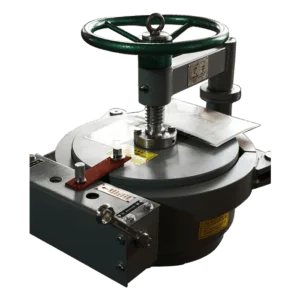
These components are designed to meet the specific requirements of quick opening closures, providing efficient and reliable access to pipelines and pressure vessels. Their robust construction, combined with precise engineering, allows for easy operation, secure sealing, and optimal performance in various industrial applications. Whether it’s the bayonet type, clamp type, or lock ring type, each QOC variant offers unique advantages depending on the pipeline diameter and operational conditions. By selecting the appropriate type and components, operators can ensure safe and efficient access to their pipelines and pressure vessels, facilitating maintenance, inspection, and repair activities while minimizing downtime and optimizing operational efficiency.

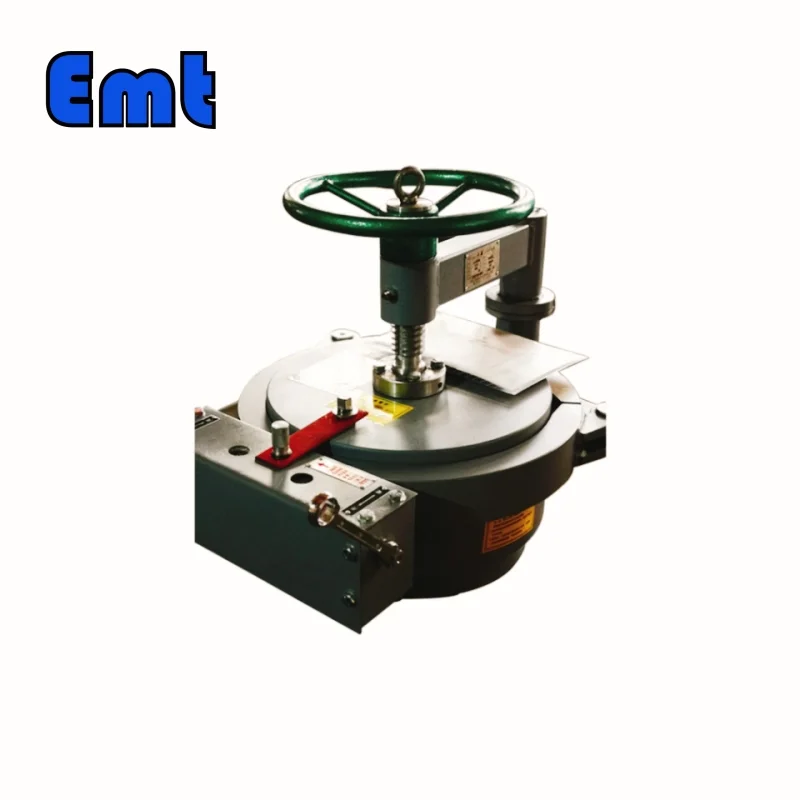
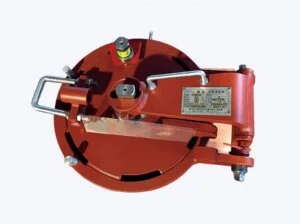
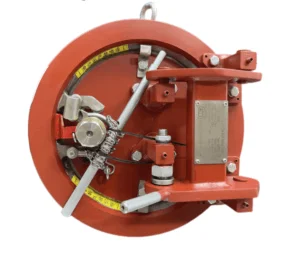
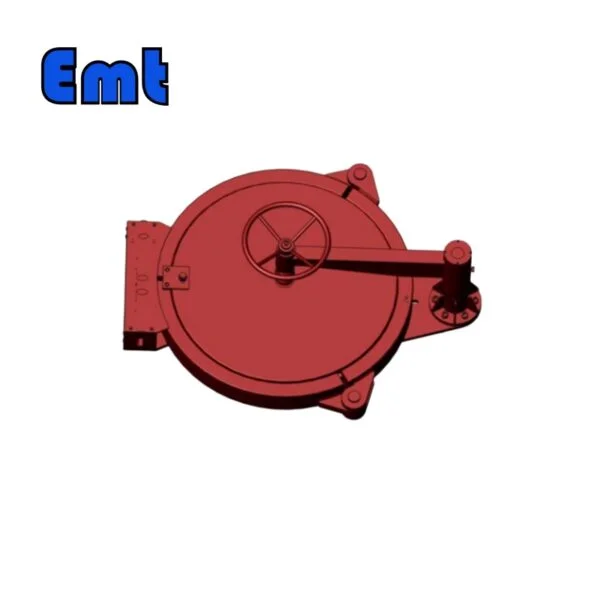
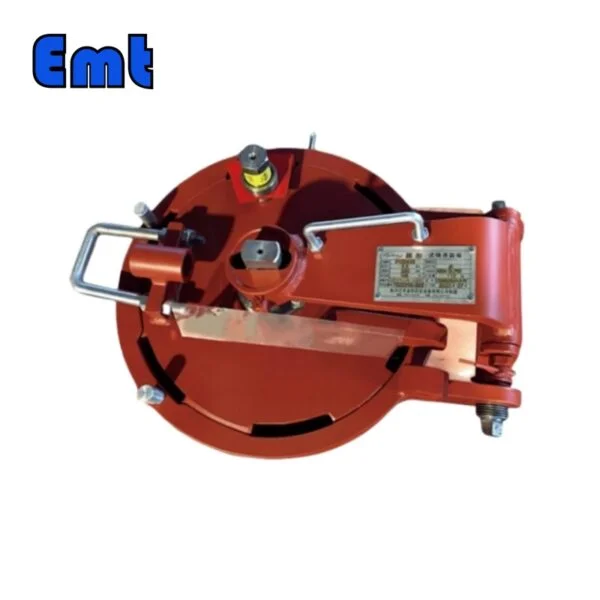
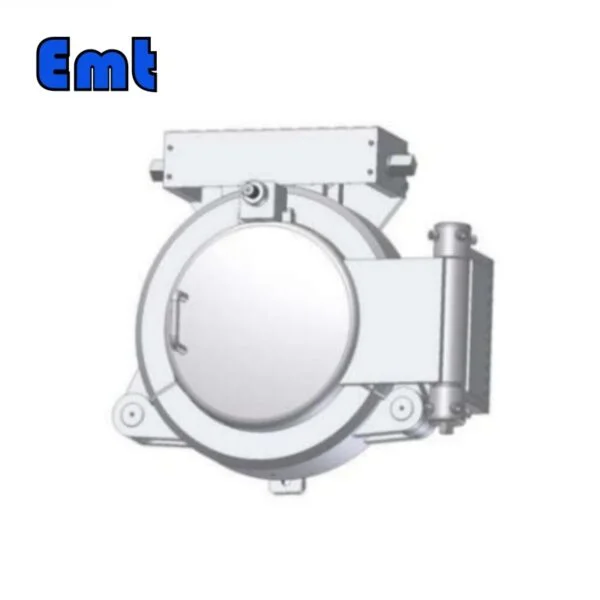
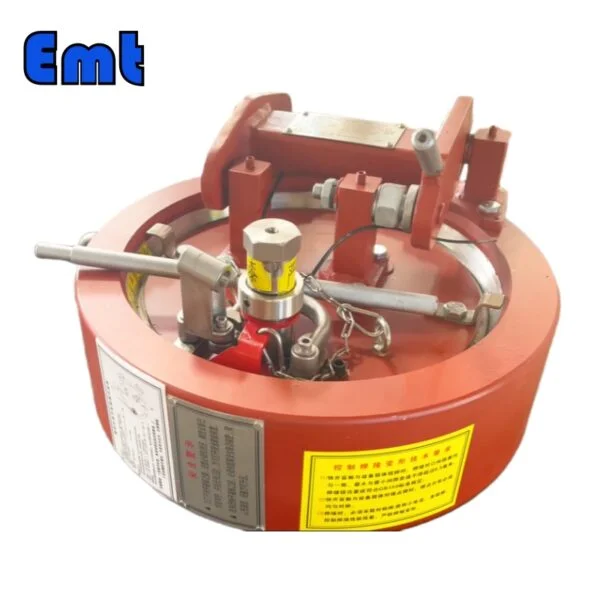
Reviews
There are no reviews yet.